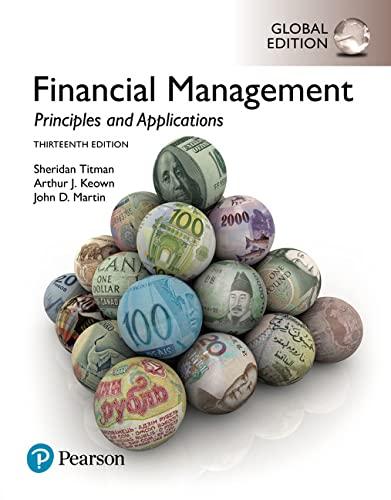
Suppose a firm's tax rate is 25%. a. What effect would a $9.12 million operating expense have on this year's earnings? What effect would it have on next year's earnings? b. What effect would a $9.8 million capital expense have on this year's earnings if the capital expenditure is depreciated at a rate of $1.96 million per year for five years? What effect would it have on next year's earnings? a. What effect would a $9.12 million operating expense have on this year's earnings? What effect would it have on next year's earnings? (Select all the choices that apply.) A. A $9.12 million operating expense would be immediately expensed, increasing operating expenses by $9.12 million. This would lead to a reduction in taxes of 25% $9.12 million = $2.28 million. B. A $9.12 million operating expense would be immediately expensed, increasing operating expenses by $9.12 million. This would lead to an increase in taxes of 25% $9.12 million = $2.28 million. C. Earnings would decline by $9.12 million - $2.28 million = $6.84 million. There would be no effect on next year's earnings. D. Earnings would decline by $9.12 million - $2.28 million = $6.84 million. The same effect would be seen on next year's earnings. b. What effect would a $9.8 million capital expense have on this year's earnings if the capital is depreciated at a rate of $1.96 million per year for five years? What effect would it have on next year's earnings? (Select all the choices that apply.) A. Capital expenses do not affect earnings directly. However, the depreciation of $1.96 million would appear each year as a capital expense. B. Capital expenses do not affect earnings directly. However, the depreciation of $1.96 million would appear each year as an operating expense. C. With an increase in taxes of 25% $1.96 million = $0.49 million, earnings would be higher by $1.96 million - $0.49 million = $1.47 million for each of the next 5 years. D. With a reduction in taxes of 25% $1.96 million = $0.49 million, earnings would be lower by $1.96 million - $0.49 million = $1.47 million for each of the next 5 years







